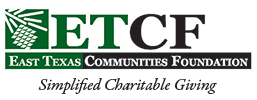After months of work and thousands of soundbites from all points along the political spectrum, Congress delivered, and the President signed, the Big, Beautiful Bill. H.R. 1 is the budget reconciliation bill which is probably the most substantial piece of federal legislation that will be passed by Congress this year. Whether or not you view the bill as beautiful, there is no question is it big. It is a huge bill, 870 pages in length, which reads like a giant proofreader’s notepad. It’s 870 pages explaining all the punctuation, list numbering, date, percentage and dollar amount changes that should be made to the existing U.S. Code to accomplish hundreds of policy changes desired by the President and Republican majorities in Congress. It was passed under a unique process known as budget reconciliation, so it was able to pass with simple Republican majorities in both the House and the Senate with zero Democrats voting in favor of it. If you try to read it, it is almost completely void of any coherent thought because it is simply referencing changes that should be made to current U.S. laws. Analysts and commentators will be explaining the law in interviews and articles for many months as provisions in the law begin to take effect. In my last column, I urged readers to take a look at the bill and let your voice be heard if there were items in it that you support or oppose. The time for expressing your opinion in hopes of affecting the final bill has now passed, and we can now examine what the bill really did that could impact the charitable sector.
Title 26 of the U.S. Code is the Internal Revenue Code, otherwise known as the tax code. It is the roughly 6,000 pages of federal tax policy describing in detail how taxes are levied and collected. As I often say, tax policy does not make people charitable, but tax policy often affects the timing and amount of charitable giving.
So what does freedom of assembly have to do with philanthropy? Our federal tax code, written by our elected representatives, provides incentives and deterrents to guide our behavior. Philanthropy is something we generally appreciate and want to encourage as a society, so our tax code provides incentives in the form of tax exemptions, tax deductions and tax credits. Tax exemptions allow organizations to avoid paying taxes because they serve the public good. Tax deductions and tax credits allow individuals and corporations to reduce their taxes because they voluntarily contribute some of their personal and private resources to support the work of tax-exempt charities which serve the public good.
President Trump’s “One, Big Beautiful Bill” is a piece of legislation that is currently being crafted by Congress. The House has passed their initial version of the bill and it includes several items that impact philanthropy in the form of tax exemptions, tax deductions and tax credits. Some of the issues in the House version of the bill include new or increased taxes on tax exempt organizations, a new tax deduction for charitable gifts for individuals who do not itemize, and a new tax credit for gifts to certain scholarship granting organizations.
If you attended or financially support colleges or universities with your philanthropy or tuition dollars, you might want to pay attention to the new and increased taxes some “tax-exempt” colleges and universities will be required to pay with your resources. If you support local charities which receive grants from “tax-exempt” private foundations, you might want to pay attention to new taxes those private foundations may be required to pay, which will necessarily reduce the resources they have available to support local charities. If you are disappointed that you have not been able to take a tax deduction for your charitable giving because of the new higher standard deduction, you might want to pay attention to the new non-itemizer deduction in the bill. If your company supports charities, you might want to read about the new floor proposed for corporate charitable gifts. If you have an opinion about school choice, you might want to review the section that details the new federal tax credit for contributions to tax-exempt K-12 scholarship organizations. The Senate is working on their version of the bill and it will likely differ from the House bill on many of these issues. Whether you support or oppose the proposed changes in this bill that impact charitable giving, it is up to you to use your freedom to thoughtfully and respectfully express your opinion. Congress needs to hear from you, particularly if you disagree with provisions in either of these bills. They need to know how you or your community may be impacted. Learning more about the “One, Big Beautiful Bill” and sharing your support or opposition to the myriad of provisions in it with your elected officials may be your next best opportunity to Give Well.


Recent Comments